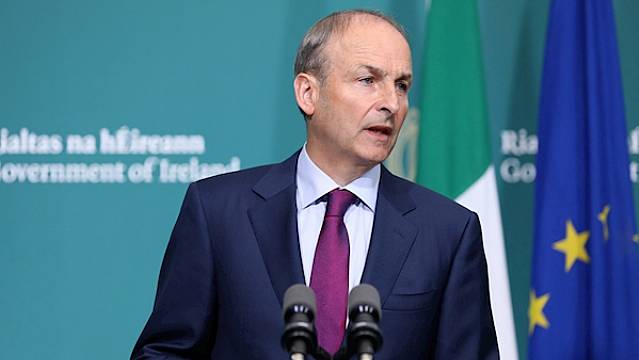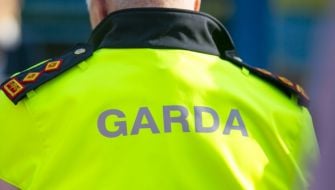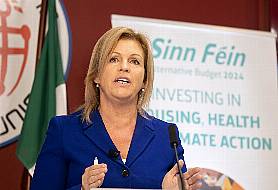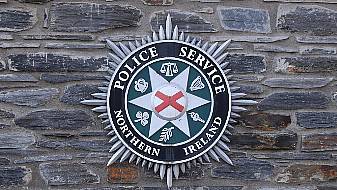Taoiseach Micheál Martin has addressed the nation following the Government decision to implement Level Three restrictions to curb the spread of Covid-19 until October 27th.
Mr Martin said the Government had detailed discussions surrounding NPHET's recommendation to move the country immediately to Level Five restrictions, with the impact of this sudden move without the "potential of other levels of restrictions" first being realised considered.
"The potential implications of such a move are severe and very different from those we faced earlier this year," Mr Martin said of a full lockdown, mentioning the potential loss of hundreds of thousands of jobs and the difficulty of dealing with non-Covid health concerns.
If we all act now, we can stop the need to go forward in introducing further Level Four and Level Five restrictions.
It was still essential that steps be taken, and taken now, Mr Martin said. There had been a significant and serious rise in the number of cases of the virus, which remains deadly and one that can cause lasting harm even to those who survive it, he said.
Due to this, the Taoiseach said that from tomorrow midnight, all parts of the country would move to Level Three of the Government's plan for living with the virus for a period of three weeks.
Mr Martin said that the enforcement and implementation of measures would be more closely monitored as part of a two-prong approach to stepping up restrictions.
"The road ahead will continue to have many turns," he said. "If we all act now, we can stop the need to go forward in introducing further Level Four and Level Five restrictions."
Varadkar criticises NPHET
Tánaiste Leo Varadkar has criticised Chief Medical Officer Tony Holohan’s proposal for a Level Five lockdown, saying it had not been thought through and was delivered with no prior consultation: “It was landed on us on a Sunday night as a surprise and without consultation.”
Asked on RTÉ’s Claire Byrne Live about where it leaves the relationship between the Government and NPHET, he said they “have to get back on the same page and do the right thing”.
Describing the Level Five lockdown plan as a “circuit breaker strategy” and “experimental”, Mr Varadkar said such a move “requires proper thought, prior consultation and a Plan B if it doesn’t work and we’ve not had any of that”.
"We can’t say for certainty if the country can afford a second lockdown," Mr Varadkar said. Denying that the decision is being made between economy and public health, Mr Varadkar said it was about “public interest always first”.
He said Government decisions “can’t be public health only. Poverty is one of the biggest killers as well.”
Donnelly defends decision
Speaking following this evening's announcement, Minister for Health Stephen Donnelly said the Government had made the difficult decision to balance public health advice with all other social and economic considerations.
Mr Donnelly said he was "acutely aware that this move to Level Three will be extremely challenging and disappointing" for many businesses and people across Ireland.
He said the decision was taken as a result of increasing cases in nursing homes with 31 current outbreaks, along with rising hospitalisations and admissions to intensive care.
Asked why the Government had failed to issue comment on the restrictions set to implemented over the past 24 hours, Mr Donnelly said the Government had first needed to meet NPHET and go through the advice in detail. He said that following this, the Government quickly went to a Cabinet meeting and announced its decision shortly after.
- Sunday evening: NPHET recommends all counties be placed on Level Five restrictions to curb the spread of the virus.
- Monday morning: Coalition leaders meet with chief medical officer Dr Tony Holohan concerning NPHET's recommendation.
- Monday afternoon: It emerges that a move to Level Five restrictions is unlikely and a move to Level Three is expected.
- Monday afternoon: Cabinet meets to agree move of all counties in Ireland to Level Three restrictions.
- Monday evening: Taoiseach Micheál Martin confirms nationwide restrictions in national address.
Responsibility
Asked if the Government was prepared to accept the potential consequences of its rejection of NPHET's advice to move the country to Level Five restrictions, Mr Donnelly said the Government had done its best to find a balance for all of society: "We believe the decision is the right one, we believe it is the right balance."
Asked who would be held responsible if hospitalisations and deaths were to rise rapidly in the coming weeks following this evening's decision, Mr Donnelly said "the virus is responsible."
He said it was not a question of who was right or wrong, and that the Government had to consider NPHET's advice in the context of the entire country: "The only enemy here is Covid-19. That's what we're fighting."
What the Government hopes to see happen now is "what happened in Kildare, Laois and Offaly" with the suppression of the virus, Mr Donnelly added.
National response
Mr Donnelly said the decision had been taken to implement nationwide restrictions - which would also impact people living in areas of the country where rates of the virus were low - because of the virus' current "exponential" growth.
The Health Minister stated that the virus was growing exponentially outside of Dublin, and that even counties where rates are very low were highly likely to see very rapid and exponential growth "should we not act."
"A national response at this time is warranted," he said.
Mr Donnelly said NPHET would continue to monitor the situation across the country on a daily basis and the Government would continue to engage with its guidance.
Speaking on the decision to reject NPHET's advice to move to Level Five, Minister for Finance Paschal Donohoe said that the impact of such restrictions "at such speed, would not only mean the loss of thousands of jobs but also the likelihood that they would not come back.
"It would have changed the prospects of small and medium sized employers across the country," he added.
Level Three reaction
The Government’s rejection of the advice of public health experts on new restrictions to stop the spread of Covid-19 has been described as a “seismic moment”.
Some industry groups have welcomed the news, with Retail Excellence saying that “over 280,000 employees in the retail industry will breath a sigh of relief tonight as they remain in employment.”
However, the group warned that a move to Level Three would still have a “profound impact” on cafes forced to move to outdoor dining and takeaway only and on customer footfall in the run up to Christmas.
Publicans have warned the move to Level Three restrictions will see 50,000 jobs lost in the pub sector. The chief executive of the Vintners Federation said: “There now must be an immediate return to the original Pandemic Unemployment Payment for pub staff along with liquidity supports that will allow our members re-establish their businesses once restrictions are removed.
“While Government say these restrictions will remain in place for three weeks, we have learnt from bitter experience that reopening dates can move at the last minute.”
The Restaurants Association of Ireland described a move to Level Three as a “devastating blow for Irish hospitality,” saying that 180,000 jobs would be lost across restaurants, cafes and other hospitality businesses in the coming week.
The Government’s communication of the new restrictions today has also been criticised as “communications chaos” by affected hoteliers from the Irish Hotels Federation.
Recommendation
On Sunday, the National Public Health Emergency Team (NPHET) recommended all counties be moved to Level Five restrictions.
Under the chairmanship of Chief Medical Officer Dr Tony Holohan for the first time since July, NPHET's recommendation is thought to have caught those in Government buildings completely by surprise.
sZeqi
NPHET has said every county should move to the most severe level of restrictions and return to essentially a full lockdown.
Public health officials said Level Five is now needed for four weeks to deal with the increasing spread of the virus.
What does Level Five mean?
- Stay within 5km of your home for exercise, except for essential journeys, such as food shopping and essential work that cannot be done from home
- No household visits
- No indoor or outdoor gatherings
- Very limited numbers permitted at funerals and wedding
- No sporting events, concerts, etc.
- Bars, cafes and restaurants only open for takeaway services
In the Living with Covid framework published by Government, a move to Level Five would also signal the closure of schools and colleges, however NPHET's recommendation on Sunday was made with the goal of keeping schools open.
The restrictions for Level Five on the Gov.ie website have been amended in relation to schools, creches and higher and adult education.
They had previously been listed as "open with protective measures in place" but this has since been changed to "recommendations based on situation and evidence at time".
Today's cases
There were no new deaths and 518 new cases of Covid-19 confirmed in the Republic this evening, with 134 cases located in Dublin and substantial figures also recorded in Cork, Limerick, Donegal and Meath.
Dr Tony Holohan, chief medical officer, described the new figures as part of a "significant and concerning deterioration" in the national situation.
There were also a further 616 cases of the virus confirmed on the island today in Northern Ireland, where some 3,630 cases have been reported in the last seven days.
At a meeting of the Stormont Executive today, ministers did not make any decisions on the introduction of further coronavirus restrictions in the region but are expected to revisit the issue on Thursday.
Public reaction
Long queues have formed outside a Smyths toy store in Dublin earlier today as consumers have started their Christmas shopping early with the threat of further restrictions looming.
It is unclear under the current lockdown levels which types of stores will be regarded as essential, so while supermarkets will remain open, it is unknown if the same will apply to hardware stores or car dealers.
Political reaction
Anger and surprise greeted the news of NPHET's recommendation in Government circles, with former minister Barry Cowen calling it the nuclear option.
Fianna Fáil TD Jim O’Callaghan has warned that the Government is not going to get people to change their behaviour through coercion.
“Laws, regulations and coercion are not going to defeat this virus,” he said.
The virus cannot be fought or defeated. People were being asked to do something that no previous generation had done, which was to take extraordinary measures, he said.
“If we go to Level Five now, what then?”
Mr O’Callaghan was also critical of the leaking of the NPHET recommendation of moving to Level Five. “We shouldn’t be doing business this way.” He pointed out that NPHET was an independent entity that advises the Government, but he queried why their approach had been 'inconsistent' and had escalated to the Level Five recommendation so quickly.
“If we go to Level Five now, what then?”
Mr O’Callaghan pointed out that of the 1,810 people who had died from Covid, only 47 had died since August. He also said that there were 881 hospitalised with Covid in April with 155 in ICU beds, compared with the current figures of 134 hospitalisations and 21 in ICU.







